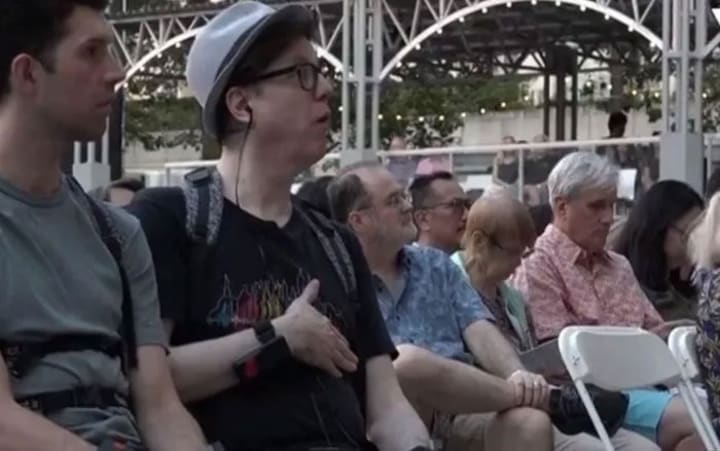Developing audio experience technology for disease treatment
According to a study published in the journal Frontiers in Pain Research, favorite songs can reduce people's perception of pain. Emotional songs have been found to be the most effective pain relievers. Or for people with hearing loss , clothes using haptic technology - technology that can create a touch experience by applying pressure or vibration - can also help them overcome social stigma.

According to a study published in the journal Frontiers in Pain Research, favorite songs can reduce people's perception of pain. Emotional songs have been found to be the most effective pain relievers. Or for people with hearing loss , clothes using haptic technology - technology that can create a touch experience by applying pressure or vibration - can also help them overcome social stigma.
The study was conducted by Darius Valevicius, a PhD student in neuroscience at the University of Montreal, Canada. In the experiment, 63 people brought along two of their favorite songs, and the only requirement was that the songs had to last at least 3 minutes and 20 seconds.
Specifically, the two songs included their favorites, as well as the songs they would take with them if they were stranded on a deserted island. The researchers also asked the participants to choose one of seven relaxing songs that they had never heard before.

Music can soothe the soul, but according to a recent study in Canada, music can also reduce physical pain for listeners.
During this process, the researchers placed a hot object — like the pain from a cup of boiling hot tea on the skin — on the participant's left inner elbow.
When rating their experience, participants reported feeling less pain when listening to their favorite music, compared to unfamiliar relaxing music or silence. The shuffled music also did not reduce pain, which the researchers took as evidence that music is more than just a distraction from unpleasant experiences.
After interviewing participants about the songs they brought with them and rating their pain, the researchers found that those who listened to sad and emotional songs felt less pain than those who listened to relaxing or happy songs.
Valevicius theorizes that, to avoid overloading the brain with all the stimuli around it, the brain filters out anything it deems redundant or irrelevant. In this case, the brain may be focusing on the music and filtering out some of the pain messages . Although the body still feels pain, the message that tells us to perceive pain may not be getting through.
"When people are listening to music they like, in our estimation, it can reduce the pain that we are feeling by about 10% ," said Mr. Valevicius.
A few months earlier, at a concert in New York, USA, the audience, including many deaf people, wore suits using haptic technology - technology that can create a touch experience by applying force or vibration, along with bracelets and anklets to experience music through vibrating movements on the skin.
Each instrument vibrates in a different position on the body, like a violin placed on the chest, a bass like a trumpet placed behind the person, a trumpet placed on the shoulder.
With this technology, regardless of whether the audience can hear or not, they can feel the highs and lows of the music through physical impact.

Concert in New York, USA, audience enjoyed music through touch experience by applying force or vibration, with bracelets and necklaces.
The experience is also an opportunity to connect people who seem to have nothing in common. After the concert, many deaf people said they felt much happier. Because it had been a long time since they had felt such beautiful sounds and music.
Therefore, in the future, technologies that help people get closer to music to serve medical purposes will be researched and developed more.
Specifically, the two songs included their favorites, as well as the songs they would take with them if they were stranded on a deserted island. The researchers also asked the participants to choose one of seven relaxing songs that they had never heard before.
About the Creator
Ken Daklak
Telling stories my heart needs to tell <3 life is a journey, not a competition
If you like what you read, feel free to leave a tip,I would love some feedback
https://s.shopee.vn/pa9mXcwE?share_channel_code=8
Enjoyed the story? Support the Creator.
Subscribe for free to receive all their stories in your feed. You could also pledge your support or give them a one-off tip, letting them know you appreciate their work.






Comments
There are no comments for this story
Be the first to respond and start the conversation.